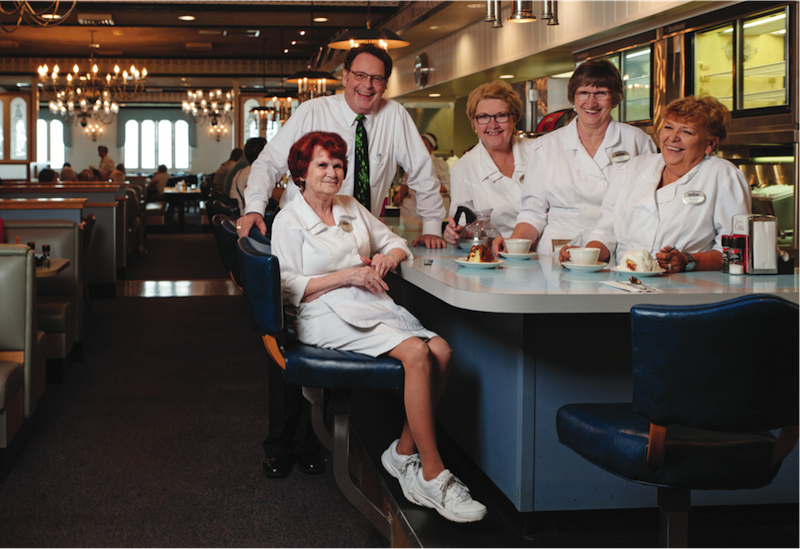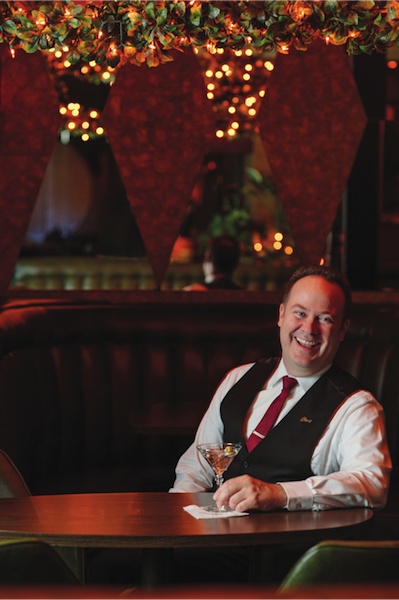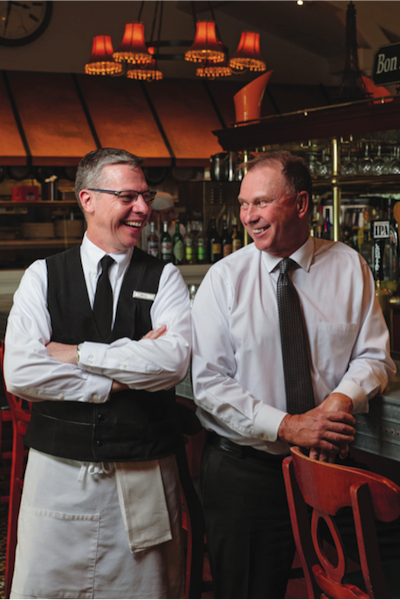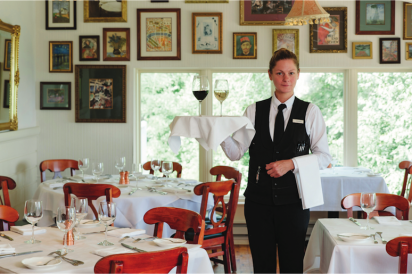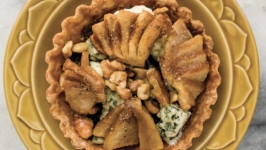Home Away From Home
Hospitality is as old as organized culture, cutting through social classes, vocations and financial means. Greek mythology is replete with stories such as the take of Baucis and Philemon, a poor couple who welcomed the gods Zeus and Hermes (who were disguised as humble travelers) inot their meager home, giving them food, drink and a warm place to stay. The couple was richly rewarded for their kindness, modeling the importance of gracious hospitality toward strangers. The word "hostpitality" itself comes from the Latin word hospes, from which we get host, hospital, hostel and hotel.
For the ancient world, hospitality was noble, a form of god-fearing behaivor. One never knew when the weary traveler at the foor would be immortal. This ethos of giving to others by way of food, drink and shelter has been echoed across many cultures for millenia. Moses entertained strangers to his tent in the Old Testament suspecting they were angels. Islam entreats all hosts to care for guests kindly, even prisoners of war. The Taittriya Upanishad, a Hindu scripture, states that "the guest is God."
So how has hospitality evolved into a modern experience, especially with today's uniquely modern trend of dining out? As a fan of culinary history, I love places that have been giving of themselves for a long time. Since July of 1938, Schreiner's Restaurant--at the corssroads of Highways 23 and 41 in Fond du Lac, Wisconsin--has been just that. The current owner, Paul Cunningham, started working there forty-eight years ago at the tender age of fifteen. To say Schreiner's is just a restaurant is to diminish what it is to the community. The ethos of hospitality at Schreiner's is palpable. A classic American restaurant, it is a living example of how we as a culture once ate and came together as we traveled via the new freedom of the automobile. It is still a stopping point for travelers; the day I talked to Cunningham he was readying the restaurant to open early the next moring for a legion of truckers who were due before Schreiner's typically opens for breakfast.
Imagine Howard Johnson's of the 1950's, but decorated in Delft blue and serving a menu that is one part supper club, one part elevated diner, one part regional fare and one part uber homemade. I'm talking homemade in a way that only an aunt, a grandmother or some other warm hearted matriarch can achieve. Imagine a server named Marlene, Cheri or Deb, all of whom have worked at Schreiner's well over twenty years. Imagine customers who have known the staff for decades. This is Schreiner's.
"We get credit for a lot of successful people who have worked here," Paul told me, "and I always say 'Go home and thank your parents, teachers and coaches. 98% is personality. Am I proud of what I do? Am I about me? Am I about others?' There are the things I look for with someone who is interested in working at Schreiner's," Cunningham said. "Being honest, genuine, present, reading the room and figuring out how you can be professional and make the guest go home happy. We give a lot of service here. People don't always realize it, but that's the point."
Joe and Paul Bartolotta are nationally considered consummate restauranteurs. Over the last twenty-five years, their vision has grown from their eponymous first restuarant, Ristorante Bartolotta, to sixteen restaurants throughout the Milwaukee area, each with a unique identity. "When it comes to our culture of hospitality, our five tenets of operation can seem counterintuitive," Joe told me, "but if you really understand hospitality, then they make sense. In order of priority, we take care of our employees, we take care of our guests, we take care of our vendors, we take care of the community, and we take care of the bottom line.
When talking about their employees, Joe notes, "We have a shared goal and a shared fate." That last word struck me as incredibly profound: fate. The Bartolottas believe that the way their team embodies hospitality is in fact their company's fate. I have spent years around restuarant kitchens, and it was in one of the Bartolotta kitchens that I encountered how they train, distinguish and imbue a sense of hospitality. Joe called it, "working around the restaurant," and having witnessed it in action eight years ago at Lake Park Bistro, I have come to admire it. Over the course of about two and a half weeks, every new hire goes through each station of the restautant. They might, as I witnessed at a pastry station, be hired for the host station, but they are going to spend a full shift at each station. On the grill, sauté, garde manger, pastry, prep, behind the bar, in the dishpit, the host stand, etc.
"We want them to know every position in the restuarant and have awareness and respect for every position," says Joe. "It's a big time commitment and sometimes folks say 'this is not for us.' But hospitality is giving of yourself for the needs of someone else." It creates an employee who feels a sense of what the team experiences and is going to be all the more present and compasisonate to the guests. "We have success or failure based on how the team performs," Joe added. "It's literally like a symphony. That's how we serve."
Bryant's Lounge did not start out as a bastion of hospitality. Originally opened as a beer bar in 1963, it transitioned to America's first free-standing cocktail bar by 1938. Enduring and endearing, Bryant's flourished as a location of superior hospitality. Part of its lore was the way customers were treated.
John Dye, its third owner, saved the lounge and part of American cocktail history, when he bought it and re-opened Bryant's in 2008, just as the craft cocktail boom began. Hospitality remained central at Bryant's because of Dye's deep convictions. "I really believe hospitality is at the center of our mission at Bryant's," he stated. "History is important, but it doesn't mean as much if guests aren't having a posititve and memorable experience. I call it 'old time hospitality' and it really rounds out the experience at Bryant's."
One of the best cocktail spots in America, Bryant's is stunningly unique in that it offers no menus. Though they have a cadre of house cocktails, it is more common for the barender to ask, "What kind of mood are you in? What flavors do you like?" (Once I even heard, "Tell me about a favorite memory, and let me see if I can create a cocktail around that.") This mix of temerity and attunement has always struck me as the highest art of hospitality. You really have to be present for the guest for this level of work. For these reasons, Bryant's is lauded as a high bar to be measured against and a beloved bar in the craft cocktail world.
Hospitality can be present at a gas station, a coffee bar or a church basement potluck, but wherever it appears, it should have no weight. There should be no sense that the hosts are put upon. The honor is in the service.
When dining out, seek the places that embody this form of giving. They have earned your trust before you have even sat at their table. They are walking in a very important part of human history. They understand that we give because we hope someday the same kindness will be bestowed upon us or our loved ones. We give because it makes the world a more kind and loving place. We give because by giving we receive.


